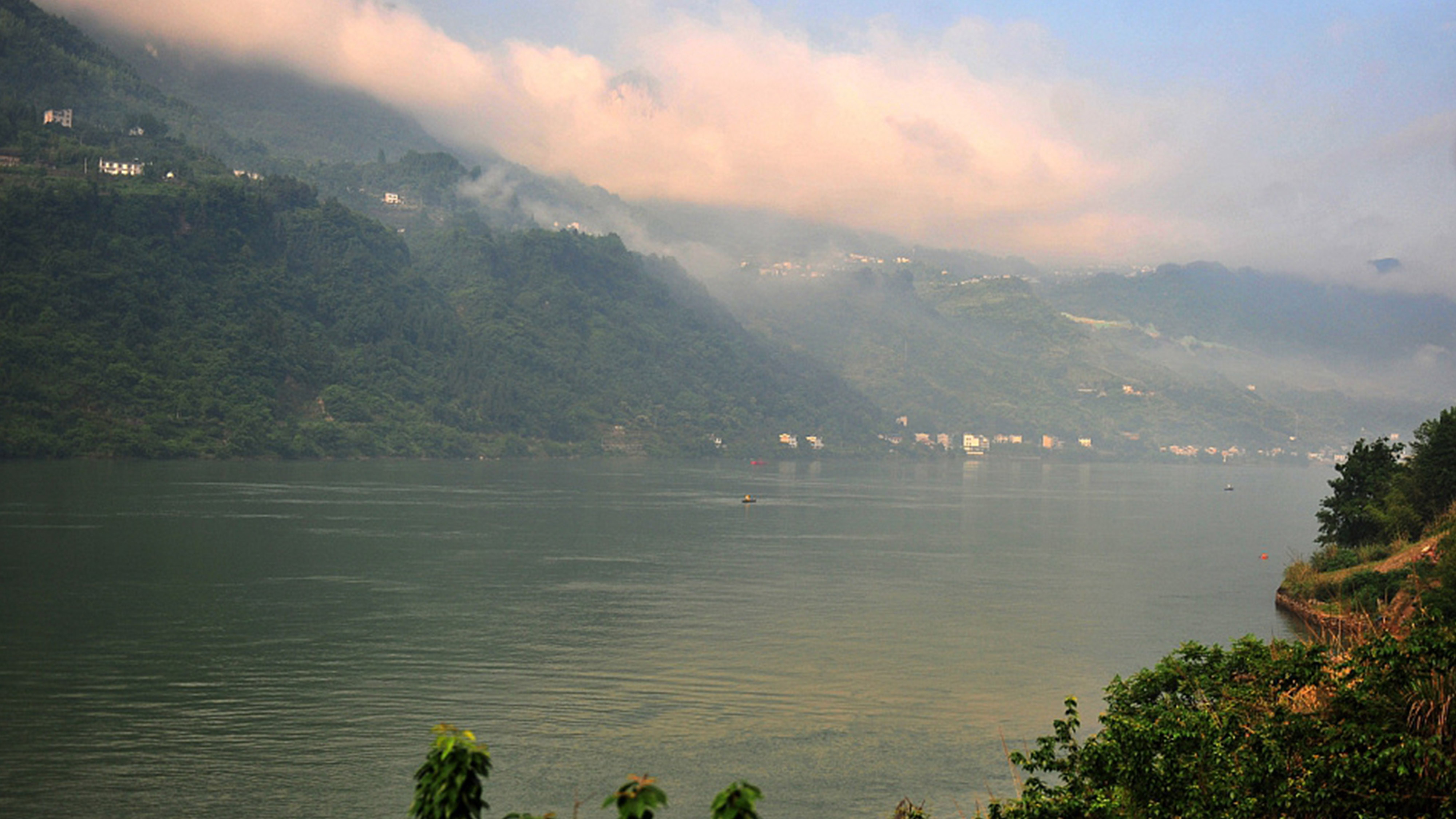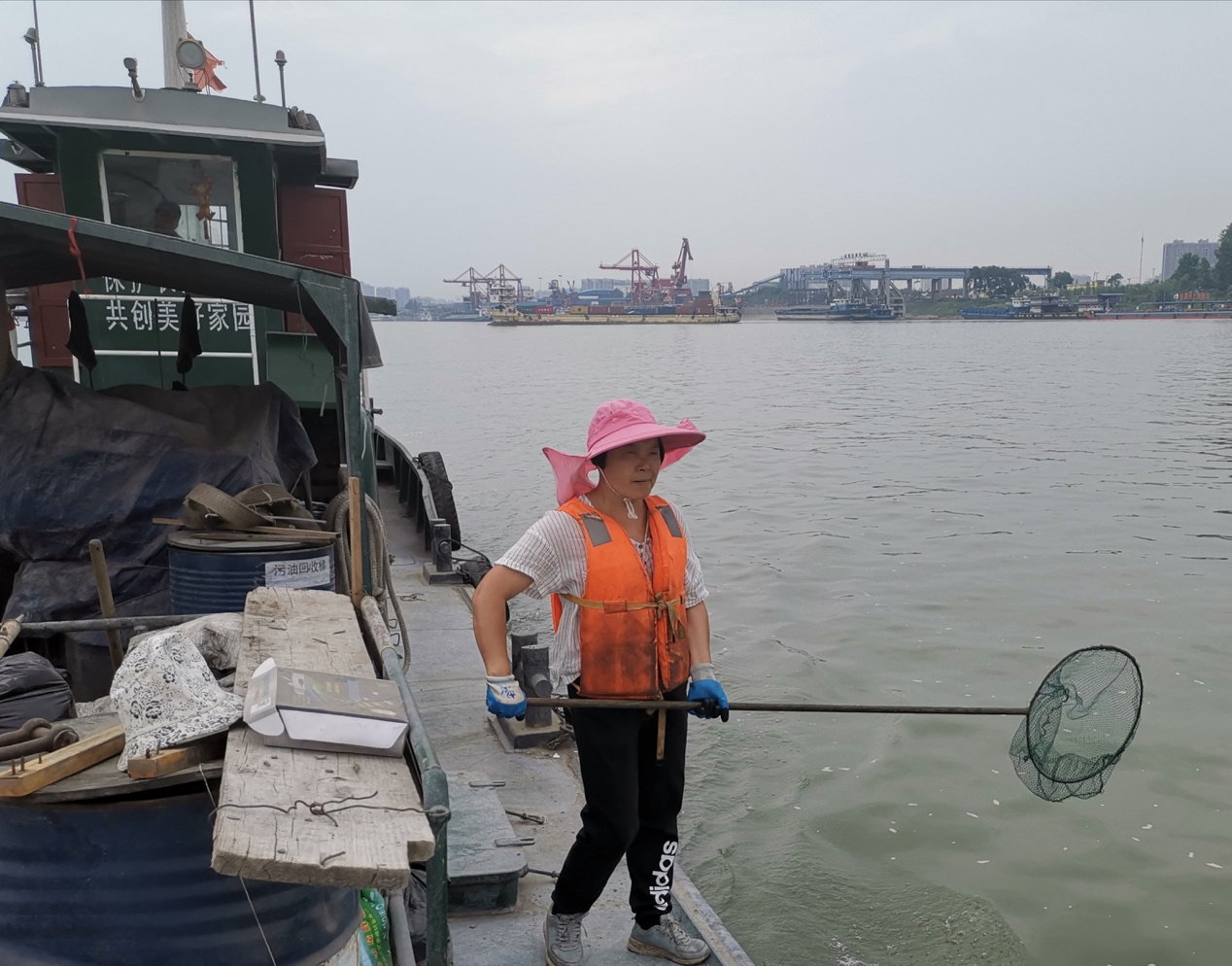

For more than a decade, Sun Hongyan and her husband have tied their destiny to the Yangtze River. The couple collects trash along 10 kilometers of the popular waterway.
"We started doing this to make a living, but then we found our job very meaningful. Both my husband and I were born and raised near the river. The environment here was very good when we were young. We don't want to see any wastes floating on the water," Sun said.

Sun Hongyan collects trash on the Yangtze River. /CGTN Photo
They collect approximately 200 tons of waste a year. Sun said they just sold their house on the riverbank and bought a new boat to carry on their work along the river.
"We have bonded this career with our lives. We will move our home onto our new boat very soon," Sun said.
She said she wishes there could be a specified pier for river waste recycling. There's still a risk of secondary pollution if there's no safe dock to transfer the trash from the boat to the bank.

Sun Hongyan (right) and husband collecting trash from a fishing boat. /CGTN Photo
The Yangtze River stretches 1,061 kilometers in Hubei Province. The river is a major resource for locals who live, trade and commute along the waterway. The days of simply dumping waste into the river are gone, as people's awareness of protecting their environment have increased.
China's Yangtze River passes through nine provinces and two municipalities. Together they form an economic belt, representing over 40 percent of China's GDP. Hubei has the longest section of the Yangtze River. That's why the province has prioritized the protection of the world’s third longest river.

Wuhan, Hubei's provincial capital, located in the Yangtze River economic belt. /CGTN Photo
Hubei Province is also the center of some major national ecological projects. It is home to the world's largest hydroelectric gravity dam, the Three Gorges Dam. Also, its Danjiangkou Reservoir is the main water source for the country's south-to-north water diversion project.
"Hubei is an important shield of China's ecosystem. The province should take advantage of the Yangtze River's resources to serve its development, but we should put environmental protection as a priority," said Tao Lianghu, executive vice president of Party School of Hubei Provincial Committee of Communist Party of China.

A view of the Yangtze River in Wuhan City. /VCG Photo
Since Hubei made 4.15 million hectares along the river a protected zone in 2018, about 48,000 hectares of trees have been planted. A total of 115 chemical enterprises were also closed or removed from the river.
The local government is working on establishing long-term mechanisms, and development of the tourism industry along the economic belt is underway.
(Cover image via VCG)
(If you want to contribute and have specific expertise, please contact us at nature@cgtn.com)

Copyright © 2018 CGTN. Beijing ICP prepared NO.16065310-3
Copyright © 2018 CGTN. Beijing ICP prepared NO.16065310-3